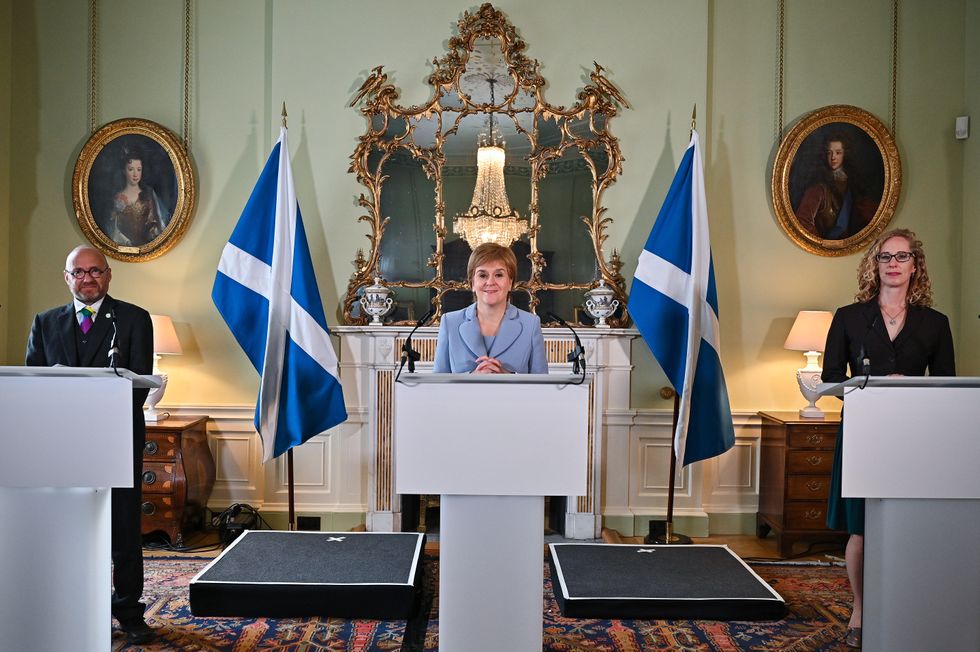SNP-Green deal will fall apart if 'impossible' requests made, says Green co-leader

First Minister Nicola Sturgeon (centre) and Scottish Green Party co-leaders Patrick Harvie (left) and Lorna Slater (right) at Bute House, Edinburgh.
Jeff J Mitchell










